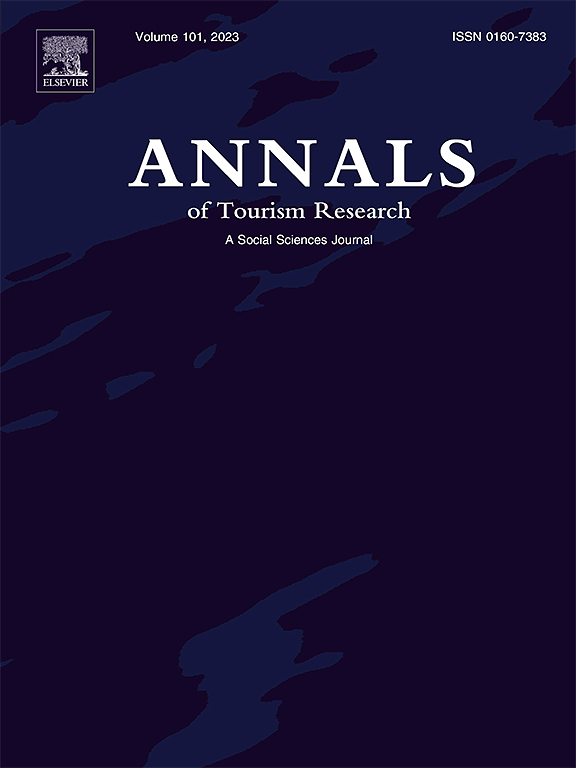旅游抽样:停留时间偏差
IF 7.8
1区 管理学
Q1 HOSPITALITY, LEISURE, SPORT & TOURISM
引用次数: 0
摘要
旅游研究在很大程度上依赖于定量方法,特别是现场调查,以收集有关行为、偏好、动机和满意度的数据。虽然现场调查可以提供即时和特定环境的响应,但其位置会显著影响数据的准确性。这项研究强调了当调查在旅游景点而不是边境点进行时所引入的偏见,因为选择概率根据游客停留时间的长短而变化。研究表明,这种偏见如何扭曲了对游客行为的估计。这些发现对过去使用非边界调查的研究的有效性提出了挑战,并提出了纠正方法。最后,该研究呼吁重新考虑实证旅游研究方法,以确保数据收集的公正和可靠,或者在样本有偏差时适当权衡数据。本文章由计算机程序翻译,如有差异,请以英文原文为准。
Sampling in tourism: The length of stay bias
Tourist research heavily relies on quantitative approaches, particularly on-site surveys, to gather data on behaviour, preferences, motivations, and satisfaction. While on-site surveys offer immediate and context-specific responses, their location significantly impacts data accuracy. This study highlights the bias introduced when surveys are conducted at tourist attractions rather than border points, as selection probabilities vary based on tourists' lengths of stay. The research demonstrates how this bias distorts estimations of tourist behaviour. The findings challenge the validity of past studies using non-border surveys and propose correction methods. Ultimately, the study calls for a reconsideration of empirical tourism research methodologies to ensure unbiased and reliable data collection or to weigh properly the data when the sample is biased.
求助全文
通过发布文献求助,成功后即可免费获取论文全文。
去求助
来源期刊

Annals of Tourism Research
Multiple-
CiteScore
19.10
自引率
9.10%
发文量
135
审稿时长
42 days
期刊介绍:
The Annals of Tourism Research is a scholarly journal that focuses on academic perspectives related to tourism. The journal defines tourism as a global economic activity that involves travel behavior, management and marketing activities of service industries catering to consumer demand, the effects of tourism on communities, and policy and governance at local, national, and international levels. While the journal aims to strike a balance between theory and application, its primary focus is on developing theoretical constructs that bridge the gap between business and the social and behavioral sciences. The disciplinary areas covered in the journal include, but are not limited to, service industries management, marketing science, consumer marketing, decision-making and behavior, business ethics, economics and forecasting, environment, geography and development, education and knowledge development, political science and administration, consumer-focused psychology, and anthropology and sociology.
 求助内容:
求助内容: 应助结果提醒方式:
应助结果提醒方式:


